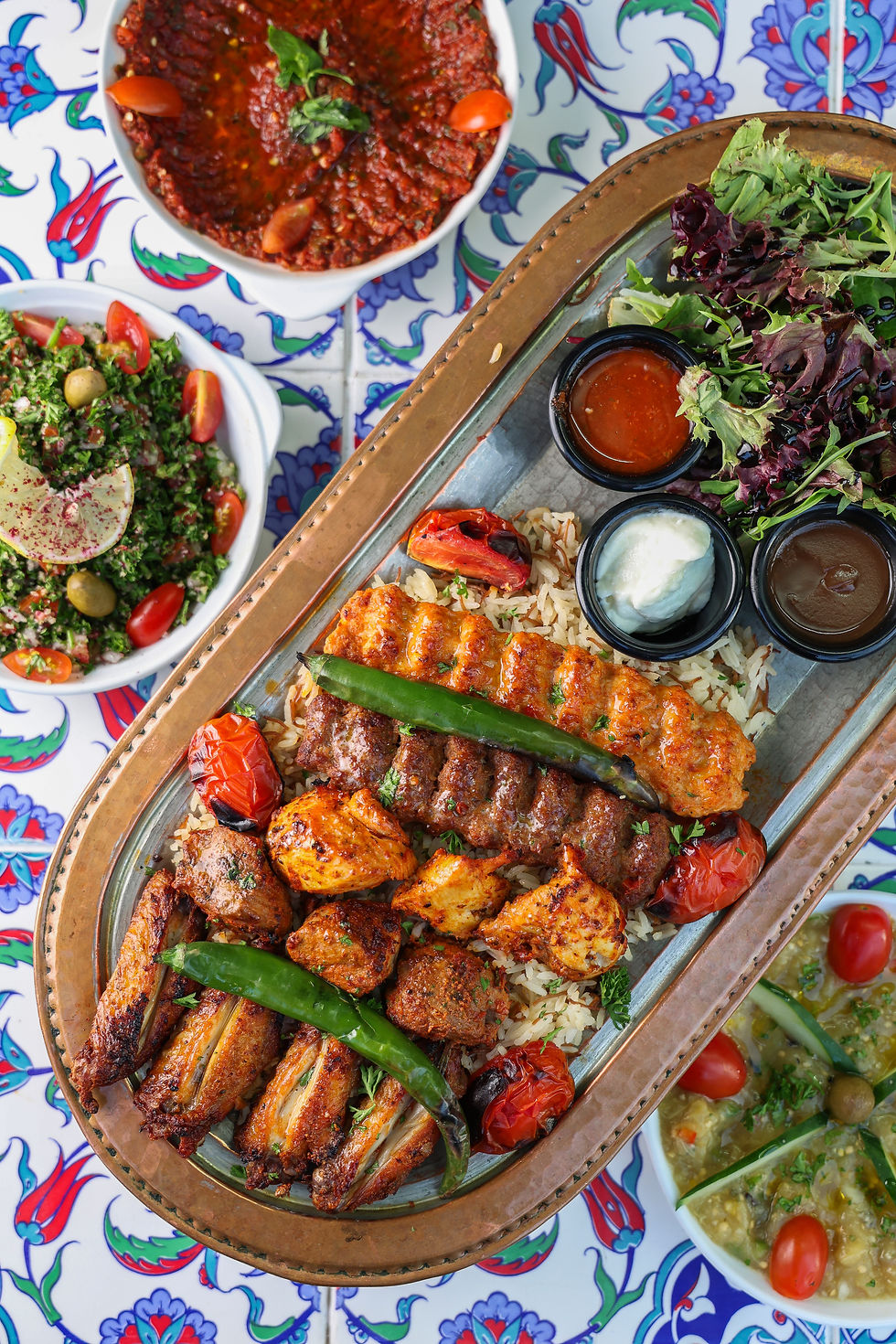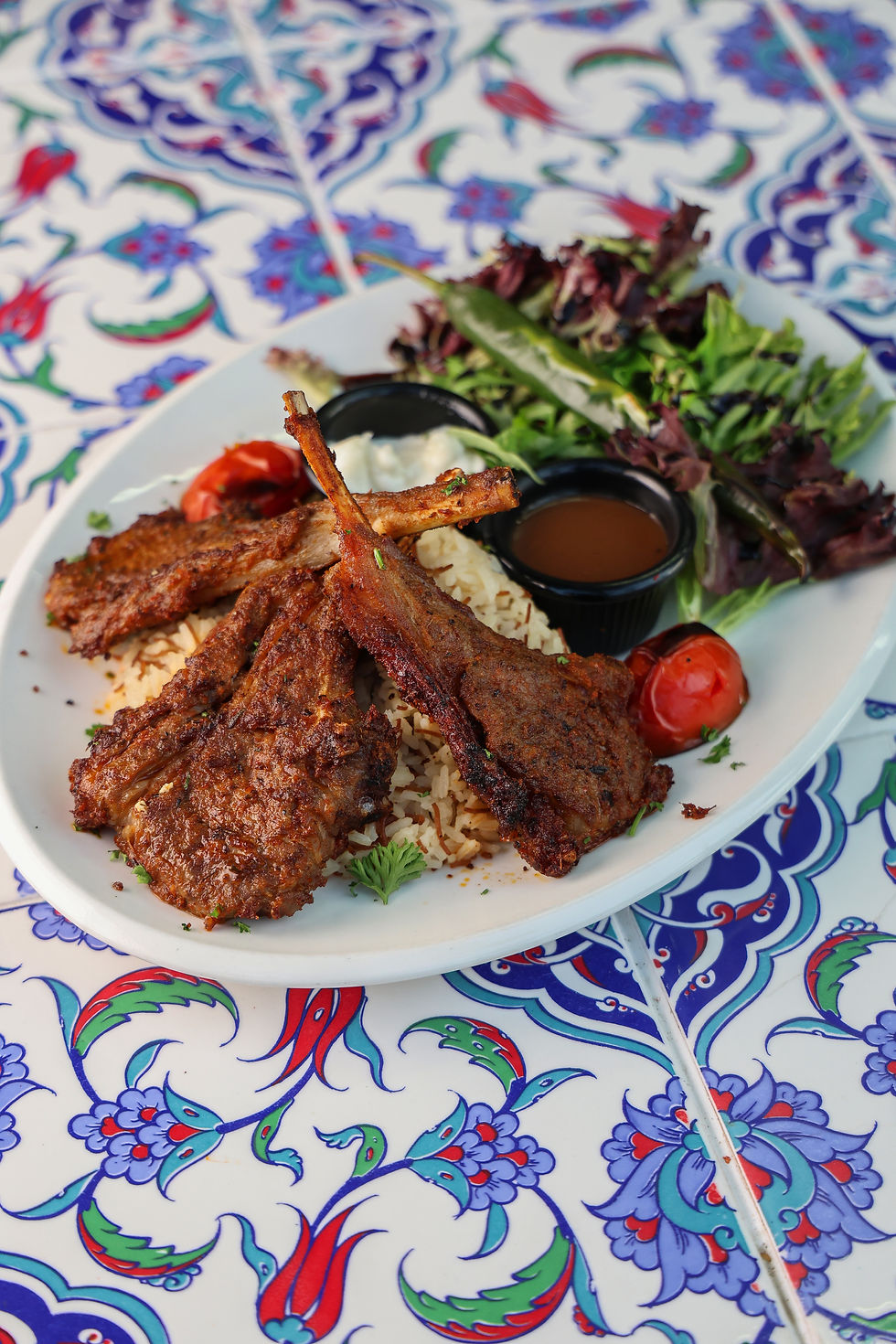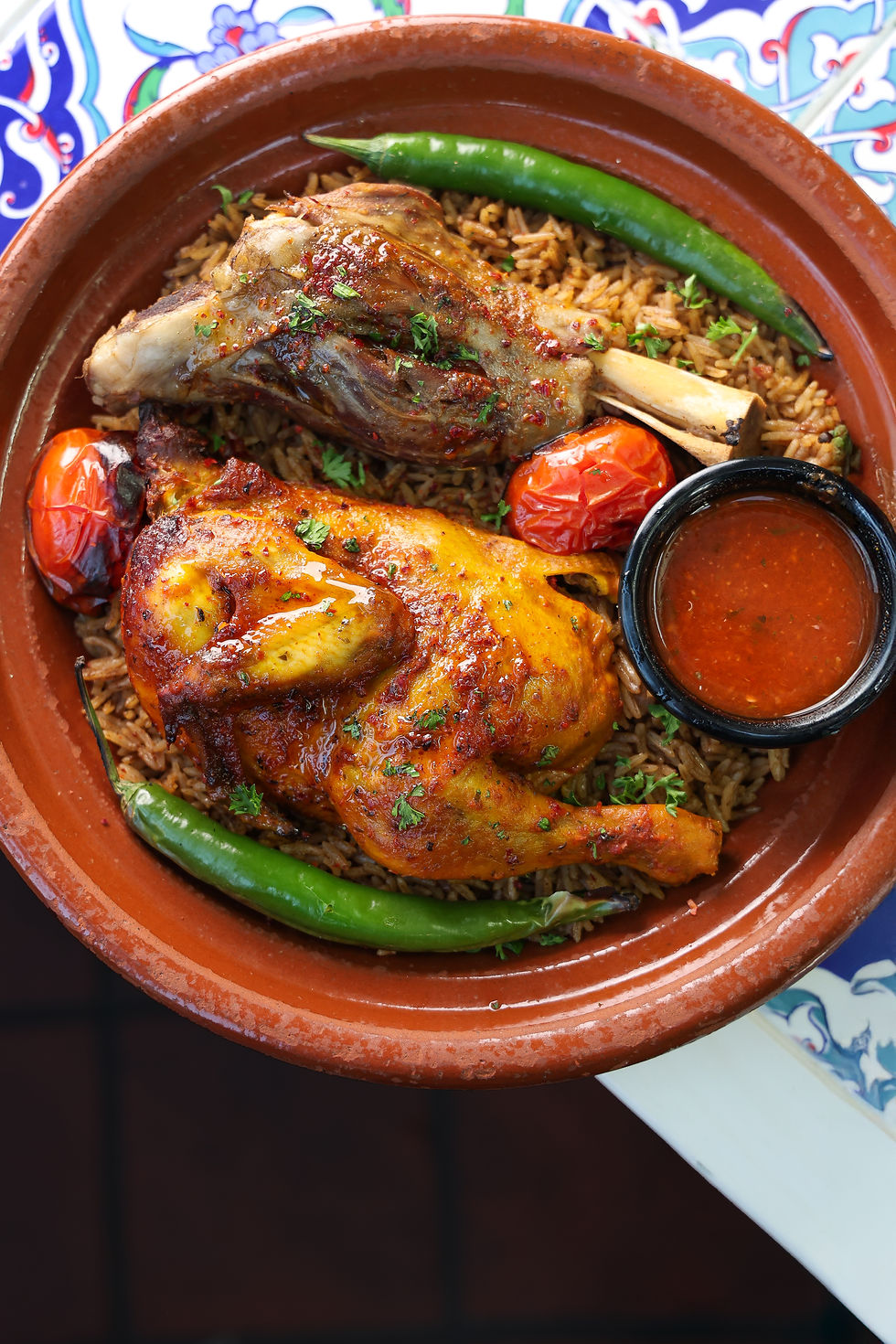A Journey Through Mediterranean Flavors and Traditions
- cappadociasg
- Jul 25
- 4 min read
The Mediterranean region is a picturesque mosaic of diverse cultures, histories, and, most importantly, flavors. Stretching from the rugged coasts of Spain to the lively markets of Morocco and the sun-kissed shores of Greece, Mediterranean cuisine is a delightful representation of its people. What lies at the heart of this culinary journey is not just the food itself but the traditions and stories behind each dish. In this post, we will explore the widely varied flavors that make Mediterranean food so beloved around the world.
Mediterranean Cuisine
Mediterranean cuisine is characterized by its focus on fresh, healthy ingredients. Olive oil, vegetables, and grains are staples in various diets across the region. As a result, Mediterranean dishes tend to be both nutritious and vibrant.
One of the essential components of this cuisine is the use of herbs and spices. Fresh herbs like basil, parsley, and mint enhance the natural flavors of the ingredients. Spices such as cumin, coriander, and paprika provide depth and character. If you want to embrace Mediterranean cooking at home, consider stocking your pantry with these staples.
Additionally, sharing meals in Mediterranean cultures is common, symbolizing the importance of community and family. Whether it’s breaking bread over a traditional Sunday feast in Italy or enjoying a mezze platter in Lebanon, eating together fosters connections and nourishes relationships.

The Influence of Local Ingredients
The Mediterranean Sea abounds with a wealth of local ingredients that shape its culinary landscape. Each seaside community has its specialties, reflecting local farming and fishing practices.
For instance, coastal areas celebrate seafood in their diets, with dishes like Spanish paella showcasing Mediterranean fish, shellfish, and saffron-infused rice. In contrast, the inland regions rely heavily on fresh produce and legumes. Variations of tagines in Morocco, for example, highlight local vegetables and spices, making each version unique.
Fruits such as olives, lemons, and figs also play significant roles. The iconic Mediterranean olive, whether green or black, is pressed into oil and brined into a delicious snack. When citrus fruits are in season, they add a fresh zing to salads and marinades.
The availability of quality ingredients in Mediterranean diets contributes to their reputation for promoting health. Studies have found that following a Mediterranean-style diet may lower the risk of heart disease and improve overall well-being. Therefore, focusing on local, seasonal ingredients is not just good for your palate; it's also beneficial for your health.

Is Turkish Cuisine Considered Mediterranean?
Turkish cuisine is often viewed as a bridge between East and West, rich in flavors and history. Given Turkey's geographical position, it is undoubtedly a part of the Mediterranean culinary landscape.
Turkish Mediterranean cuisine draws upon diverse influences, including Balkan, Middle Eastern, and Central Asian traditions. This results in a unique blend of flavors. Staples in Turkish cuisine often include yogurt, fresh vegetables, and aromatic spices, making them quite similar to their Mediterranean counterparts.
Some favorites, such as dolmas (stuffed grape leaves) and kebabs, have made their mark across various countries. The distinct methods of cooking and flavor profiles make Turkish dishes feel both familiar and exciting.
Additionally, the importance of hospitality in Turkish culture aligns closely with Mediterranean customs. Sharing food becomes an intimate way to forge connections, inviting friends and family into the heart of the home.

Culinary Traditions of the Mediterranean
Food in the Mediterranean is often intertwined with celebrations and cultural traditions, making it far more than just sustenance. Festivals, whether religious or seasonal, play a significant role in culinary practices, with special dishes being prepared to mark these occasions.
For example, during Ramadan, various Mediterranean countries prepare unique iftar meals that include everything from sweet pastries to savory stews. In Italy, the July festival of Ferragosto often sees families gather for large meals featuring local seafood and seasonal fruits.
Cooking methods also reflect cultural traditions. The practice of slow cooking is popular throughout the region, allowing flavors to meld beautifully.
To dive into Mediterranean culinary traditions, consider adopting one or two traditions into your own meals. For instance, preparing a special dish during family gatherings can instill a sense of connection to the broader Mediterranean culture.
Cooking Your Way Through Mediterranean Flavors
If you're eager to explore Mediterranean flavors in your kitchen, starting with simple recipes is an excellent approach. Various dishes are relatively easy to prepare yet offer robust flavors.
Begin by trying a classic Mediterranean salad, combining fresh ingredients like tomatoes, cucumbers, olives, feta cheese, and a drizzle of olive oil. This dish is not only refreshing but also a beautiful representation of the region's culinary practices.
Another easy dish is a vegetable stew, which can include local vegetables, chickpeas, and aromatic spices. Making a big pot can allow you to enjoy leftovers throughout the week or share with friends.
When preparing Mediterranean dishes, use high-quality ingredients, particularly olive oil and spices, as these can elevate the overall taste significantly. Experimenting with local ingredients can help tailor each dish to your preferences, making the process enjoyable and imaginative.
Incorporating Mediterranean recipes into your weekly meal planning offers an opportunity to embrace healthy choices. The variety of flavors and textures keeps meal times exciting while ensuring your diet remains balanced.

Embracing the Mediterranean Lifestyle
The journey through Mediterranean cuisine goes beyond just the food. Embracing the Mediterranean way of life encompasses enjoying meals, savoring flavors, and appreciating the joy of community.
Consider adopting a slower pace when eating. In many Mediterranean cultures, meals are a time for relaxation and connection. Take your time to enjoy each bite, engage in conversation, and savor the experience.
Additionally, explore local markets to find fresh, seasonal ingredients. This not only supports local farmers but also deepens your connection to the food you consume. Learning about different fruits, vegetables, and grains can inspire your culinary adventures.
Lastly, visit local restaurants or food festivals that celebrate Mediterranean cuisine. Understanding the traditions behind the dishes you enjoy can amplify your appreciation and knowledge.
As you embark on your culinary journey through Mediterranean flavors and traditions, remember that it’s also about the experiences and connections garnered along the way. Connect with friends, family, and even the smiling faces behind your favorite local markets. Through this communal experience, you will savor not just the flavors but the rich tapestry of stories woven into every dish.




Comments